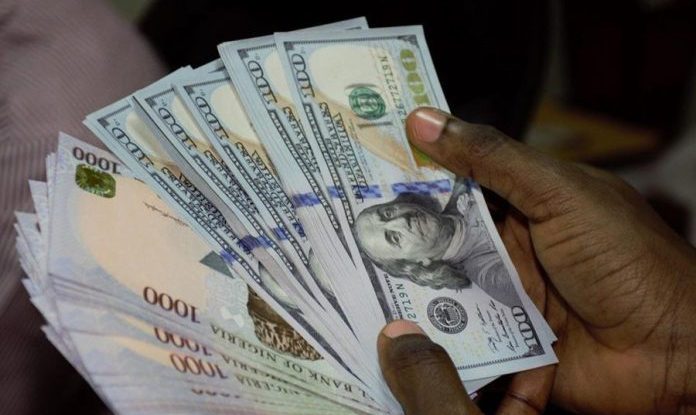The Nigerian Naira on Thursday continued its downward slope in recent days, as it exchanged for the dollars at N462 in the parallel market.
The downward slide occurred despite the resumption of forex sales to the Bureau de Change Operators.
Earlier on Tuesday, the Central Bank Governor, Godwin Emefiele, said the drop in crude oil earnings and foreign portfolio inflows affected the supply of foreign exchange into Nigeria.
Speaking at the 13th annual Banking & Finance Conference, organised by the Chartered Institute of Bankers of Nigeria with the theme “Facilitating a sustainable future: The role of banking and finance,” Emefiele said the CBN efforts are helping to unify rates.
“In order to adjust for the decrease in the supply of foreign exchange, the Naira depreciated at the official window from N305/$ to N360/$ and to N380/$,” he said.
“These adjustments along with increased efforts to restrict undue speculative activities, has led to a growing unification of rates across all the forex market segments.
“In addition, the band between the parallel market and the official exchange rate over the past month, has narrowed recently due to some of the measures taken by the CBN to curb illegal forex transactions.”
Also Read: Despite Resumption of Forex Sales to Bureau de Change Operators, Naira Plunges
But on Thursday, the Naira exchanged for N462 against the greenback in the parallel market.
The British pound on its part exchanged for N595 while the Euro exchanged for N 545 in the Lagos parallel market.
| In Context:
In recent weeks, the Naira had earlier dropped from N480/$ to about N420/$ in the parallel market. He said the CBN has continued to implement a demand management framework, which was designed to support improved production of items that could be produced in Nigeria. This strategy, he said, will aid the conservation of Nigeria’s external reserves and stabilize the currency. |

